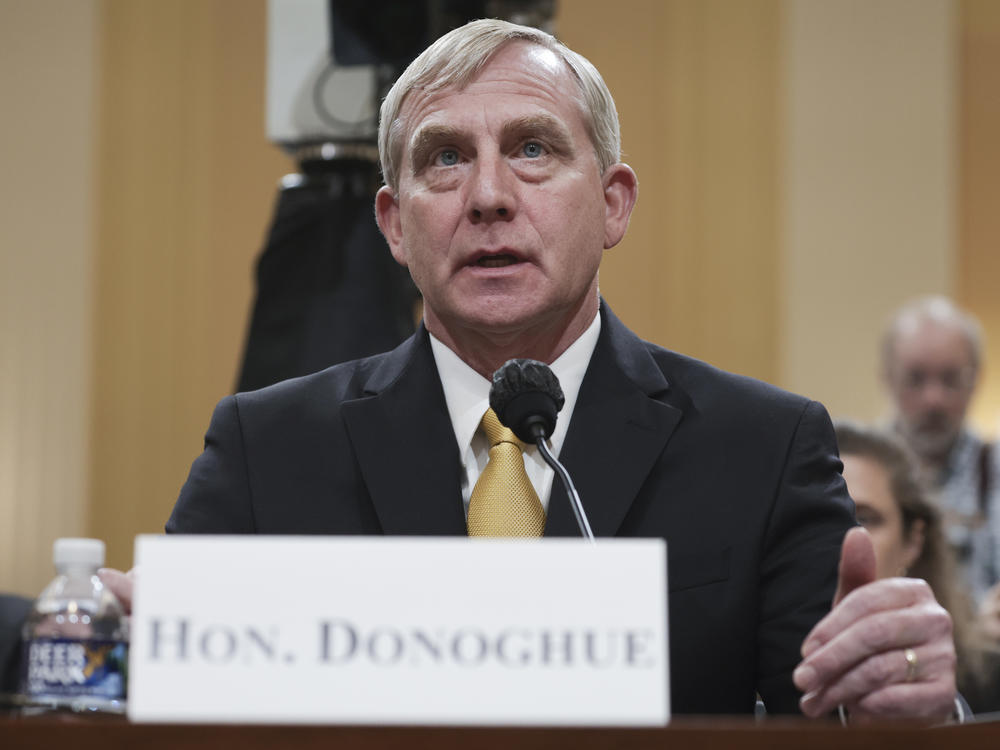Section Branding
Header Content
DOJ officials pushed back on Trump's baseless election fraud claims
Primary Content
About a week before the Jan. 6 attack on the Capitol, there was an "escalation" of then-President Donald Trump's earlier demands about election fraud allegations, a former top official in the Justice Department testified Thursday, including an "arsenal of allegations that he [Trump] wanted to rely on."
In testimony before the House select committee investigating the insurrection, former acting Deputy Attorney General Richard said he told Trump "based on actual investigations, actual witness interviews, actual reviews of documents that these allegations simply had no merit."
In a 90-minute conversation on Dec. 27, 2021, Donoghue said he went one by one through claims of fraud to debunk them for Trump.
Among those theories was a report about Dominion voting machines having a 68% error rate in a Michigan county — which turned out to be false — and that the report was transmitted to U.S. attorneys in Michigan on Dec. 14 for their awareness.
The next day, Trump pressed the DOJ that the report must be true and proved that he had won the election. He also said the Justice Department should use the report to tell the public the election was tainted.
"I did the quick calculation and came up with .0063% error rate, which is well within tolerance," Donoghue testified. He said he assured the president that the report citing the significantly higher error rate was not true.
Other theories included debunking the belief that a trailer carried ballots from New York to Pennsylvania.
Trump tried to push Donoghue to proclaim the election as illegal and corrupt. Trump told him: "Just say it was corrupt and leave the rest to me and the Republican congressmen," according to Donoghue's contemporaneous notes.
Former acting Attorney General Jeffrey Rosen also outlined a number of steps Trump asked him to take as the president sought to overturn the 2020 election, including meeting with Rudy Giuliani, a purveyor of false claims; having DOJ file a lawsuit at the Supreme Court; hold a press conference; and send letters to officials in Georgia and other states, urging them to hold special sessions about their elections.
"The Justice Department declined all of those requests ... because we did not think that they were appropriate based on the facts and the law as we knew them," Rosen told the panel.
From the time he became acting AG on Dec. 23 until an Oval Office meeting on Jan. 3, Rosen said Trump called him or met with him to push election fraud claims "virtually every day" with one or two exceptions, like Christmas Day.
Copyright 2022 NPR. To see more, visit https://www.npr.org.

